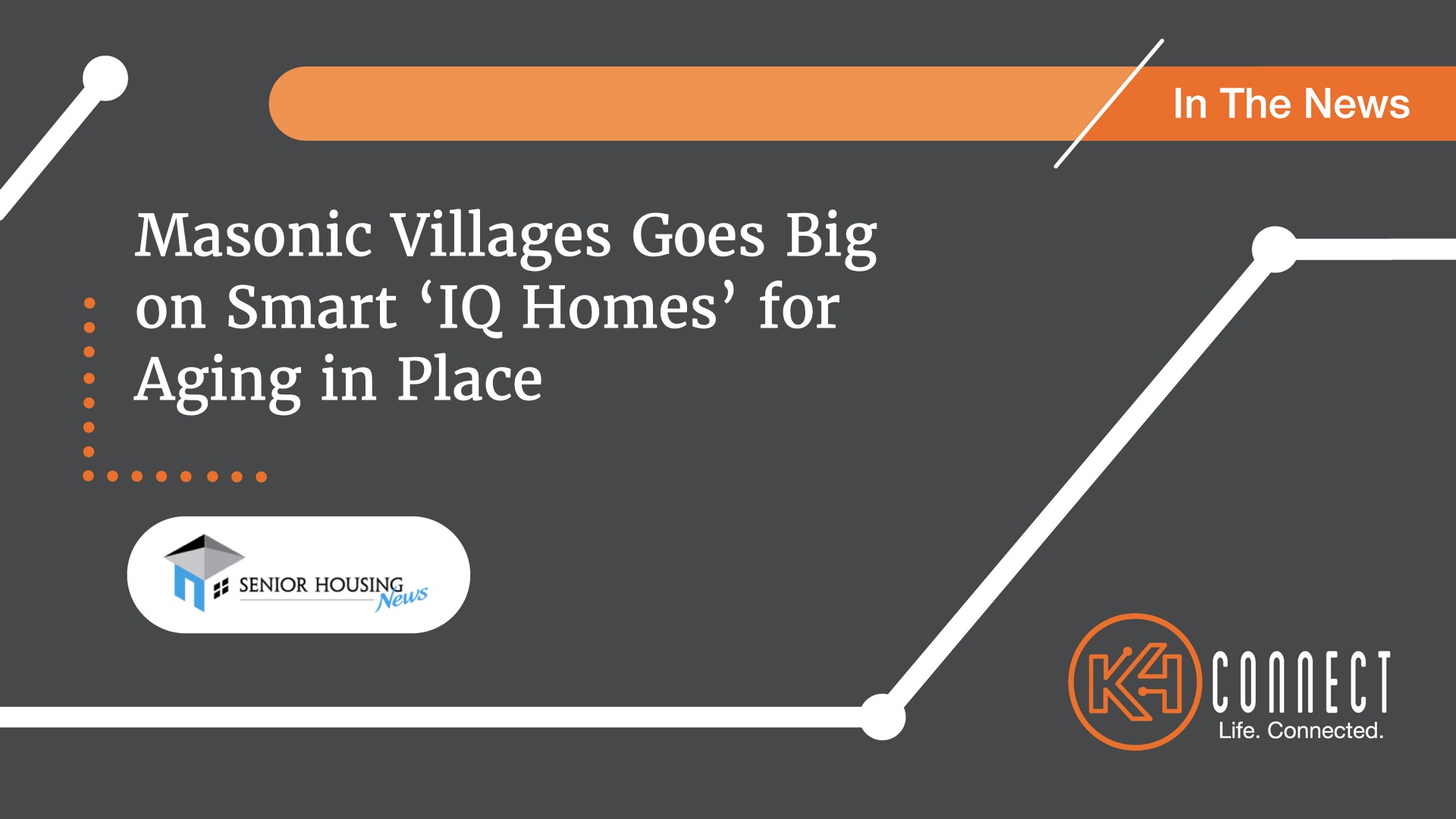The homes are designed to extend independence, and come with integrated communications technology from K4Connect, and aging-friendly adjustable access to things like countertops, cooking surfaces and bathroom appliances.
By: Tim Regan
October 4, 2018
A not-for-profit senior living provider is moving forward with a plan to open dozens of new town home-style independent living residences, each equipped with technological and design features meant to help older adults live in the setting longer.
Elizabethtown, Pennsylvania-based Masonic Villages is moving forward with a plan to build 58 new “IQ Home” dwellings at its communities in Sewickley and Elizabethtown, Pennsylvania. The nonprofit has five continuing care retirement communities (CCRCs) in the state, each offering a range of senior housing and care services. Its 2017, its operating revenue was $139.3 million, according to its latest financial statement.
“This idea, called aging in place, did have a great deal to do with our thinking in terms of developing the smart home,” Patrick Sampsell, chief environmental and facilities officer at Masonic Villages, told Senior Housing News. “This is both a consumer preference and also a direction in which government regulations seem to be pushing organizations like ours.”
The first “IQ Home” prototype — a collaboration between design firm RLPS and Masonic Villages — opened to residents at Elizabethtown earlier this year. The idea behind the project was that seniors need a full range of solutions, not just one or two flashy features, in order to better age in place.
“When you talk about smart homes, oftentimes people jump right to the tech and the gadgets,” RLPS Partner Daniel Godfrey told Senior Housing News. “For us, we realized that technology alone cannot support aging in place.”
To that end, the homes are designed to extend independence, and come with integrated communications technology from K4Connect, and aging-friendly adjustable access to things like countertops, cooking surfaces and bathroom appliances. The dwellings are also equipped with innovative design features like tankless water heaters, air filtration systems, motion sensors and even refrigerators that track whether they’ve been used recently — a potential indicator for if a resident needs help.

